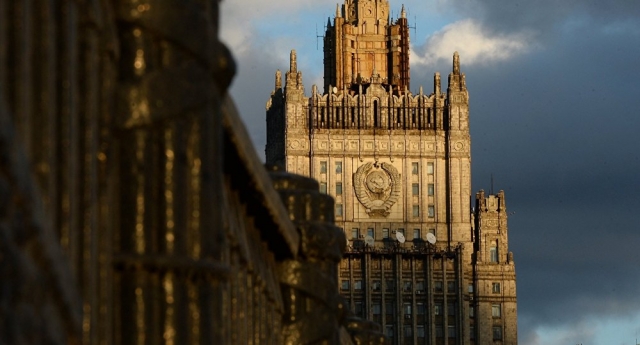Russia Signs Contract with Swiss Company on Cargo Deal with Georgia
The Russian Federation has signed a contract with the Swiss company SGS (Société Générale de Surveillance SA), a mediator which will monitor implementation of the agreement made between Georgia and Russia in 2011 on cargo movement.
The information was released by the Russian Foreign Ministry, which stated on May 19 that the agreement had been signed between the Government of the Russian Federation and the Federal Council of the Swiss Confederation for the realization of the Main Principles of Monitoring of Customs Administration and Commodity Trade.
“Thus, the Russian Federation has completed the implementation of the procedures necessary to begin the practical implementation of the Agreement on the Main Principles of Monitoring of Customs Administration and Commodity Trade signed with Georgia on November 9, 2011,” the statement of the Russian MFA reads.
The same contract was signed by the Georgian side in December 2017, during the final round of negotiations with the Swiss company held in Bern on December 19.
The next steps towards implementing the agreement will be discussed in Prague on May 24, during the regular meeting of the Georgian Prime Minister’s special representative for relations with Russia, Zurab Abashidze, and the Russian Deputy Foreign Minister, Grigory Karasin.
Abashidze stated that it is possible that a Georgian-Russian-Swiss joint working group will be set up to monitor the project’s practical implementation.
“We hope that Russia will honestly fulfill its obligations under the 2011 agreement,” the Georgian envoy stated.
As Georgia and Russia have had no diplomatic relations since the Georgia-Russia August war of 2008, the Abashidze-Karasin meetings in Prague are the only format of direct dialogue between the two neighboring states. The format was launched in late 2012.
Georgia and Russia signed the agreement on the Cargo Monitoring Movement on November 9, 2011, in Geneva, with the participation of Switzerland.
The two countries agreed to involve a neutral company to monitor the movement of goods. The Swiss Confederation was tasked with selecting a neutral private company in consultation with Georgia and the Russian Federation.
The agreement envisages the monitoring of cargo movement through three “trade corridors,” two of which run through the breakaway regions of Abkhazia and South Ossetia (Tskhinvali), and the third on the Zemo Larsi-Kazbegi border crossing point on the undisputed section of the Georgia-Russia border.
The mechanism’s functions include the gathering and sharing of information, ensuring transparency, data transfer, crime and smuggling prevention, and examining of suspicious cargo.
Georgia and Russia decided that the mechanism would entail both an Electronic Data Exchange System (EDES) and International Monitoring System (IMS).
By Thea Morrison












